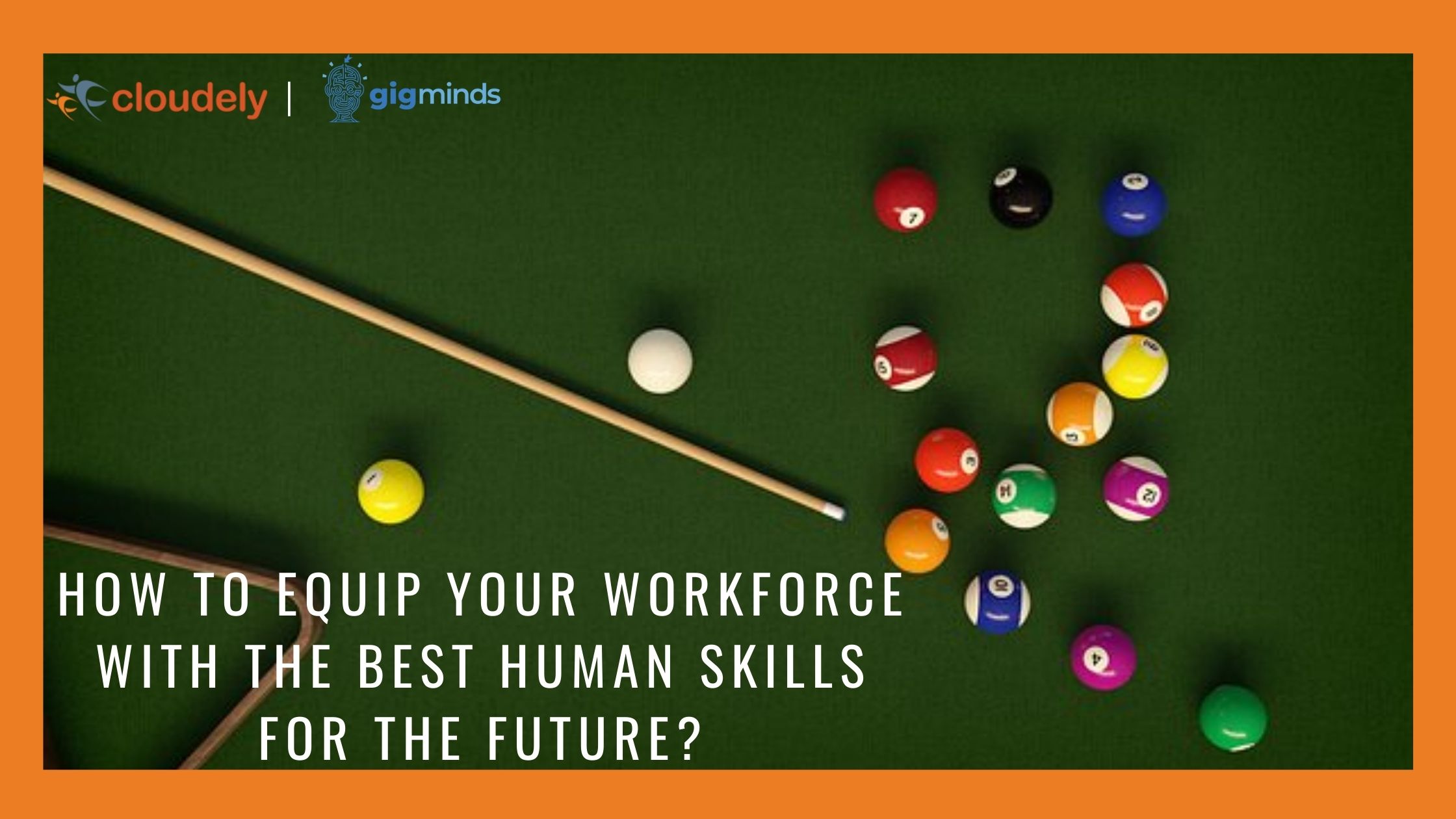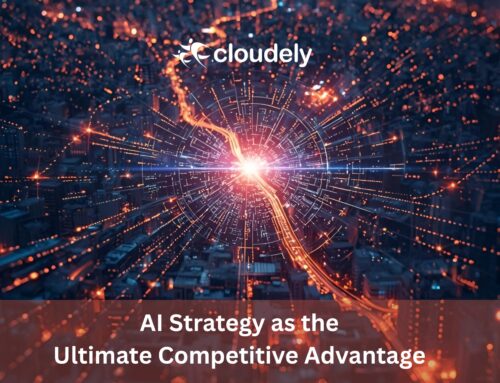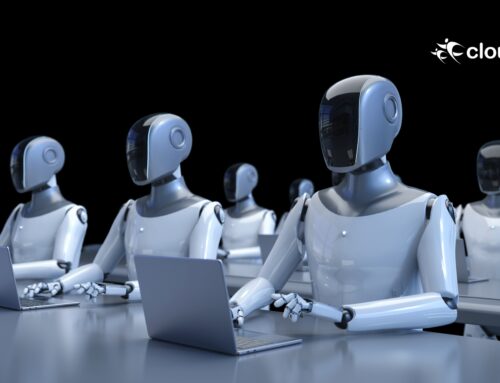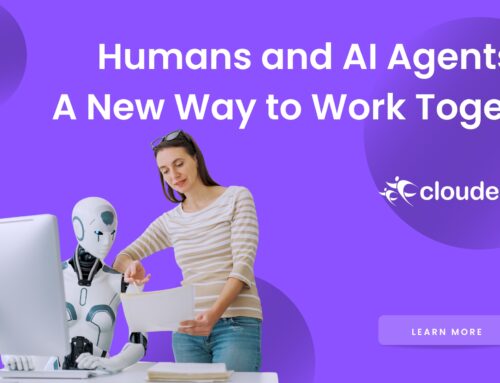Industrial Revolution 4.0 has already made its presence noticed by creating a sporadic evolution in the working style. The immensity of technological advancement in Automation, Machine Learning, and Artificial Intelligence are all set to impact the global job market. However, this time its target is the current job market that will eventually go through a massive disruption with the penetration of automation.
As businesses get accustomed to a more digitized world, revitalizing human skills for the future becomes imperative.
Elucidating this very paradox, in addition to the necessity for change in working style, the evolution proves the quote ‘Survival of the Fittest’ true. Automation, AI, Robotics, Machine Learning, etc., can equate human skills and perform double efficiently with perfection. It is the leading reason for anxiety that poses a threat to millions of jobs getting crushed.
This article thus brings the best human skills for the future and elucidates how businesses can equip their workforce with the required expertise. Here we also talk about how leaders must equip their workforce with the best human skills for the future.
Table of Contents
Why do we need Human skills for the future?
Going by the World Economic Forum (WEF) reports of 2016, companies must aim at building proficiency in human skills for the future as it plays a critical role as the world goes ahead and adapts to the modifications in science, technology, and digital economy. Coming back to 2021, we can find it turning into reality.
As per the WEF records, over 1 billion individuals would need to reskill themselves by 2030.
Furthermore, over 42% of the job market skills would witness a transformation at lightning speed, as per Klaus Schwab. It alarms the need to reskill the workforce to reduce the immensity of Industry Revolution 4.0.
Technology is winning the limelight by bringing on multiple benefits – agility, quick working, enhanced efficiency – to businesses and their way of working, making it an ideal stop for the future.
Thus, combining technical expertise with human skills for the future would further assist in restructuring jobs, especially in areas where automation cannot excel alone.
Learning and re-learning
In 2014, the Imaging Internet Center of Pew Research Center and Elon University performed a survey if AI’s introduction will create or destroy jobs. Herein, 48% voted for more employment loss, while the remaining 52% responded in favor of AI stating increased availability of jobs.
The report necessitates the way leaders look upon the job market and work towards reskilling the workforce. One way of doing so is active learning and rebuilding strategies, it insists.
Employers can align with universities, colleges, and even high schools to create the professionals of tomorrow. That would ensure the individuals are accurately educated with the human skills for the future as they graduate.
Simon Gottschalk, Sociology Professor at the University of Nevada, highlights the human skills imperative for surviving the automation revolution:
They include PR management, displaying intercultural knowledge, efficient networking, marketing, and creativity.
All these skills fall in emotional intelligence and social intelligence.
That corresponds with the MIT J-WEL Human Skills Matrix (HSX) study, wherein experts such as MIT faculty and employees rated the skills required to manage the Industry 4.0 revolution. The result was:
- Communication skills – 88%
- Creative intelligence – 66%
- Complex problem-solving – 63%
- Teamwork – 61%
- Critical thinking -54%
Such studies highlight the underlying role of human skills that is hard to be replicated by automation.
Thus, leaders must prepare the future workforce by developing interpersonal potentialities, and refining and building a talent pool well-trained in combating AI and machine skills.
Entrepreneurial mindset
Entrepreneurial skills don’t solely encompass the attribute of being ambitious. It goes way beyond expanding opportunities of relearning from mistakes, thus succeeding in every working setup.
That makes honing interpersonal skills, teamwork, and developing an entrepreneurial mindset a must- human skills for the future.
Humans alone have the potential to deal with failures and empower themselves through hard work. Hence, leveraging human power is the crux.
People management & coordination
The skills of people management and coordination form a must be among the essential human skills for the future. They allow businesses to incorporate the human view into matters driven by emotional intelligence in understanding what the users require.
Furthermore, it mirrors the fact that though AI will get the work finished faster, they lack human-related tools like creative thinking and emotional intelligence. Besides, machines cannot replicate them.
Herein, training your workforce to have an entrepreneurial mindset will let them use their skills at their best, and develop and innovate for the future.
Training to attain the pace of technology
Findings published by WEF highlight that by 2025, automation would overpower the average human time to complete a task. In simple words, adapting to automation will benefit businesses by increasing their efficiency of better output. Furthermore, as automation and digitization continue to bloom, they would likely eat over 85 million jobs by 2025.
On the positive side, this would directly also create 97 million job roles emerging in the market. Thus, leaders must train their workforce to catch up with the rapid advancement of technology.
Critical understanding and creative intelligence
Critical understanding, analytical reasoning, resilience, and creative intelligence are skills that automation cannot replicate. Thus, leaders must imbibe in the employees the potentialities of understanding different technology, and adding their analytical skills through critical thinking, thereby increasing the output and productivity.
That includes providing appropriate training to adapt to the required technology, digitization, and algorithms, honing critical thinking, complex problem-solving capabilities, and self-management.
Implementing digital systems will enable employees to efficiently utilize software systems and the processes to improve the overall requirement for future jobs, thereby meeting the demand.
Emotional and productive skills
The core of transforming into a digitized world tomorrow doesn’t merely lie in getting abreast of technology and digital skills. It goes a step ahead, wherein it is inevitable to balance it with appropriate human skills for the future.
It includes building emotional and critical skills that allow employees to balance productivity and the working environment. Developing attributes that aid employees’ mental health plays a crucial role in ensuring high productivity.
Understanding the workforce’s genuine needs while working and paying attention to human skills for the future, including emotional skills, are what leaders must do.
Self-reliance
As the industrial revolution 4.0 paves its way, there is also a gradual speeding of the process. Hence, the workforce must have the willingness and ability to work without support or guidance from leaders.
Empowering the employees to become more self-reliant by providing accurate training resources for the job forms the next crucial dimension of human skills for the future.
It also allows the employees to focus on the bigger picture of the organization and operations, thereby enabling them to manage schedules and meetings without hassle.
Contextual intellect
While our present-day learning systems meet the educational requirements, these alone are not sufficient. Especially looking through a broader view of witnessing a fourth industrial revolution, contextual intelligence forms one of the future’s critical human skills.
It includes developing real-world requirements vital to keeping the workforce ahead.
It also encompasses imbibing the knack to understand business, people, society and culture that automation cannot overpower nor can machine and AI replicate.
Innovation
As a key to future success, automation does pose a relevant point for easing daily tasks. It frees us from mundane work; however, it does need a touch of soft skills, including innovation, in addition to confidence. These are loosely related to building human skills for the future.
Hence, leaders must develop soft skills like communication, innovation through proper training and resources that keep them updated with the current needs of industrial revolution 4.0.
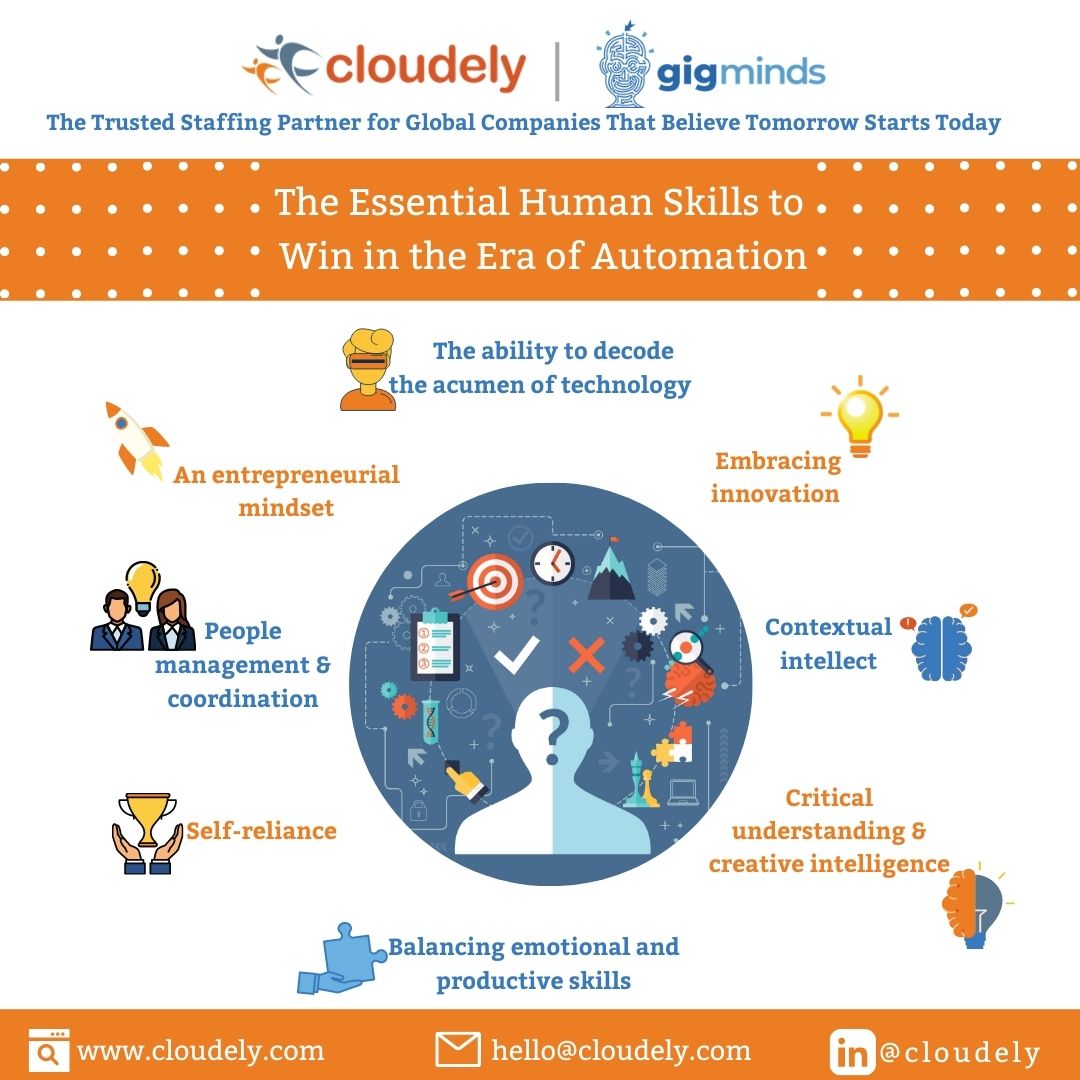
Unique challenges demand workforce to be more human
With studies providing how the fourth industrial revolution is all set to transform business operations, it is essential for us not to lag and adapt to future innovations. It is thus imperative to increase our focus on reskilling and training the workforce. That would make the future of jobs adaptable, effective, and efficient.
The present phase of industrial revolution 4.0 is sporadically metamorphosing the current job scenario. That makes it extremely important for employers to evaluate the future needs, and adapt and imbibe them into the talent pool.
Creativity, complex problem solving, entrepreneurial mindset, grasp of technology, and building interpersonal skills are fundamental human skills for the future.
Thus, leaders must qualify the employees with essential skills to sustain the future job market by combining automation with human capabilities. Combining human skills with technology is the ultimate crux of surviving Industrial Revolution 4.0.
Who are we?
Cloudely powered by GigMinds is a leading staffing and training provider to global companies. We understand the workforce needs of businesses and deliver vetted talent and train employees to meet the business challenges. Reach us at hello@cloudely.com to avail of our staffing services. Follow us on LinkedIn for the latest updates.

